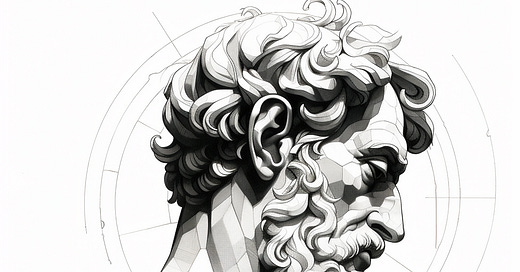Embracing Imperfection: The Value of Completed Endeavors Over Unfinished Perfection
In the heart of Renaissance Italy, a story unfolded that encapsulates the essence of human endeavor and the pursuit of perfection. In the early 1500s, renowned artist Michelangelo was commissioned to create a series of 12 apostles for the Cathedral of Florence. His work on the first statue, Saint Matthew, began with fervor and promise. Michelangelo, known for his meticulous attention to detail and his pursuit of perfection, embarked on this ambitious project with his usual passion.
However, as the months rolled into years, something unexpected happened. Michelangelo’s progress slowed, and eventually, the project was left incomplete. Only one figure, the unfinished Saint Matthew, emerged from the block of marble. The statue, though incomplete, stands today in the Accademia Gallery in Florence, a testament to Michelangelo's skill, but also a powerful symbol of an unfinished masterpiece.
This historical anecdote resonates deeply with a simple idea: the imperfect project you actually complete is worth more than the perfect project you never finish. Michelangelo’s Saint Matthew, in all its unfinished glory, presents a more compelling story than a perfect, but unrealized, series of statues.
Reflecting on this, I am reminded of my writing journey. The quest for perfection is overwhelming. Each piece begins with enthusiasm, but the pursuit of flawlessness leads to many unfinished articles. They remain drafts, hidden and unshared, always just shy of what I deemed 'perfect.' However, it is the articles I chose to complete and publish, despite their imperfections, bring about a sense of accomplishment.
This realization brings us to a critical understanding: perfection can be paralyzing, while embracing imperfection can lead to growth and fulfillment. Here are three to five steps we can take to value completion over unrealized perfection:
Set Realistic Goals: Begin with a clear, achievable objective. Perfection often disguises itself as high standards. By setting realistic goals, we can focus on completion rather than unattainable ideals.
Embrace the Learning Process: Understand that making mistakes is part of learning. Every endeavor is a journey, and the path to completion is often lined with lessons learned from imperfections.
Share Your Work: Sometimes, the act of sharing an unfinished or imperfect project can provide valuable feedback and the motivation to see it through to completion.
Limit Revision Cycles: Set a limit on how many times you will revise or revisit a project. Constant revisions can be a trap that prevents completion.
Celebrate Milestones: Recognize and celebrate the steps you complete. This positive reinforcement can break the cycle of seeking perfection.
Finally, I pose a compelling question to you: What unfinished projects are gathering dust in your life, waiting for that elusive touch of perfection? How might embracing their imperfection and striving for completion instead alter your path towards achievement and personal fulfillment?




